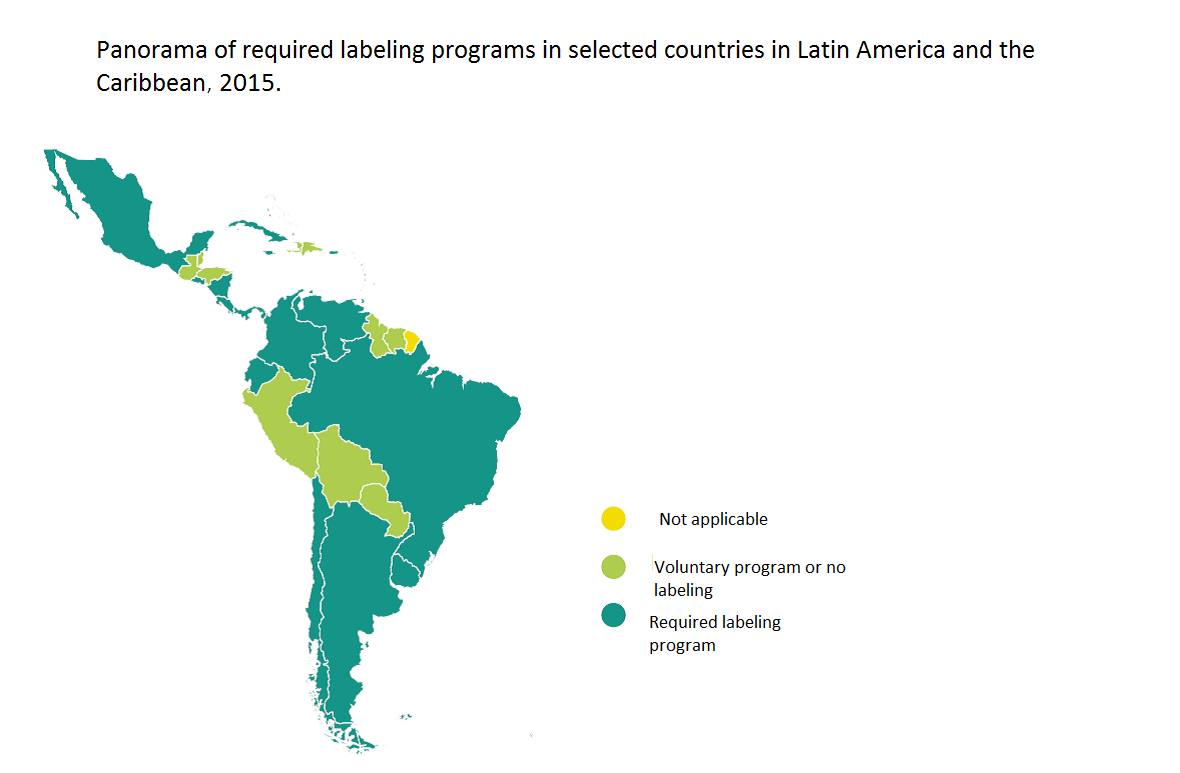Imagine that you go into a store looking for your next refrigerator. This is a major purchase, and you have a limited budget and hopes that the refrigerator will last many years. The seller shows you several models that fit what your needs and have a good price, size and come in the color you are looking for. Do you need to know more?
Did you ask about the refrigerator’s energy consumption?
A refrigerator is one of the devices that consumes the most energy at home. The decision to buy a refrigerator will affect the monthly total energy consumption in your home. The problem is that understanding what equipment consumes more energy is not simple.
That information barrier, coupled with the importance of the energy consumption of household appliances, has led many countries to actively promote the use of energy labeling. Energy labeling is a powerful tool that helps avoid wasting energy by allowing people to easily include the energy factor in their buying decision and opt for more energy efficient products.
Several countries in Latin America and the Caribbean have required labeling programs which via categories – usually A to G – indicate the level of efficiency of a product.
Today, refrigerators, televisions, air conditioners, and hundreds of other products are labeled so that you have the information you need to make a good decision. Energy labeling, however, goes beyond appliances: cars and even homes have informative labels.
Can you imagine deciding what house to buy or rent based on which one has the most economical energy use? This is a reality in many countries in Europe where a home energy rating is mandatory. This trend is also seen in Latin America and the Caribbean, where countries such as Mexico, Argentina, and Chile are promoting home labeling.
Energy labeling is not the only tool for energy policy to increase energy efficiency in local markets. The use of minimum energy efficiency standards (MEPS) is also an effective tool for limiting the import and marketing of very low efficiency products. In the lighting market, for example, countries such as Argentina, Brazil, Chile, Ecuador, and Mexico have implemented a marketing ban on incandescent lamps due to their low efficiency and are thus encouraging the transformation of their local markets lighting.
Labeling and MEPS are tools used in Latin America and the Caribbean, however, there is still enormous potential for action on standards and labeling (S & L) measures in countries that have not yet started compulsory programs or may extend these programs to equipment that is not yet regulated.
The use of labeling combined with more and better energy efficiency standards is useful and necessary in the context of responsible energy resource management tools.
To ensure effectiveness, it is necessary to note that:
- It requires a proper definition of the duties and obligations of each of the actors involved (public institutions, private sector, and civil society) and a legal and regulatory framework that properly accompanies such initiatives.
- To be effective, the standards and labeling must be continuously updated according to the evolution of technology.
- There should be clear processes/methods to estimate the energy consumption of the equipment involved.
- It is crucial that these processes/methods are verifiable and controllable to ensure the effectiveness of the measures.
- Human and financial resources must be allocated appropriately during the entire period of the S & L programs.
- A strong campaign to promote a precise and detailed of S & L programs is necessary.
Want to know more? Read our guide on S & L, currently available in Spanish.



Leave a Reply